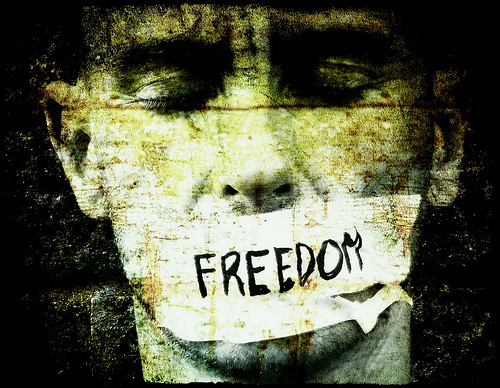In the first half of the "Discourses on freedom 1" I have dwelt upon issues regarding the aging
phenomena that democracies are experiencing. Well, you should read that!
When we speak of freedoms, we have a veil of romanticism abstracting real considerations. People are interested into clauses stating that country X has freedom of press and freedom of that encrusted in its constitution. We open the books and laws and search for every phrase that has "right" or "freedom" and then we rejoice and praise whoever wrote that.
Needless to say that is crap! So cut the crap!!!!
In reality, provisions for freedoms have no value whatsoever. They are completely worthless for two main reasons: One that is inherent in them and one relates to their enactment.
Let us first consider the flaw inherent in most clauses granting freedoms and that good stuff: The sheer phrasing of these clauses usually includes provisions to be regulated by further laws. That is to say, they all real as follow:
The deceit is such a phrase is despicable. The logical and linguistic organisation of these phrases is flawed. It would be much more sensible to say:
You are not allowed to do whatever you want: do not do the following...
That leads me to call for a new way to consider the level of freedom a people enjoy: To consider the limitations and the freedoms they are deprived of!
I was part of a conference discussing the drafting of the Tunisian constitution. There was many politicians and writers and people society deems honorable. In other words few cool people and mostly lame old dudes. Most people wanted to avert any mention in the constitution of any limits to freedom of expression. So cliché! There is going to be limits. That is indubitable! All what we should discuss in fact, is how to choose and phrase these limits rather than ignore them.
Just like coldness is the absence of heat, freedom is fundamentally the absence of restrictions.
So let us not be foolish and let us start working on making our "restrictions" and limitation fewer, efficient and clearer. That is true progressiveness and activism. Freedom seekers and activists have to admit to the realities of the world they are trying to change. There is no need for an idea that is "good in theory" and bad in practice. Instead we should acknowledge that certain limitations have to exist for our societies to function. Then we shall attempt to expose them to the public in order to strip all unnecessary restrictions from any legitimacy!
Lebounce
